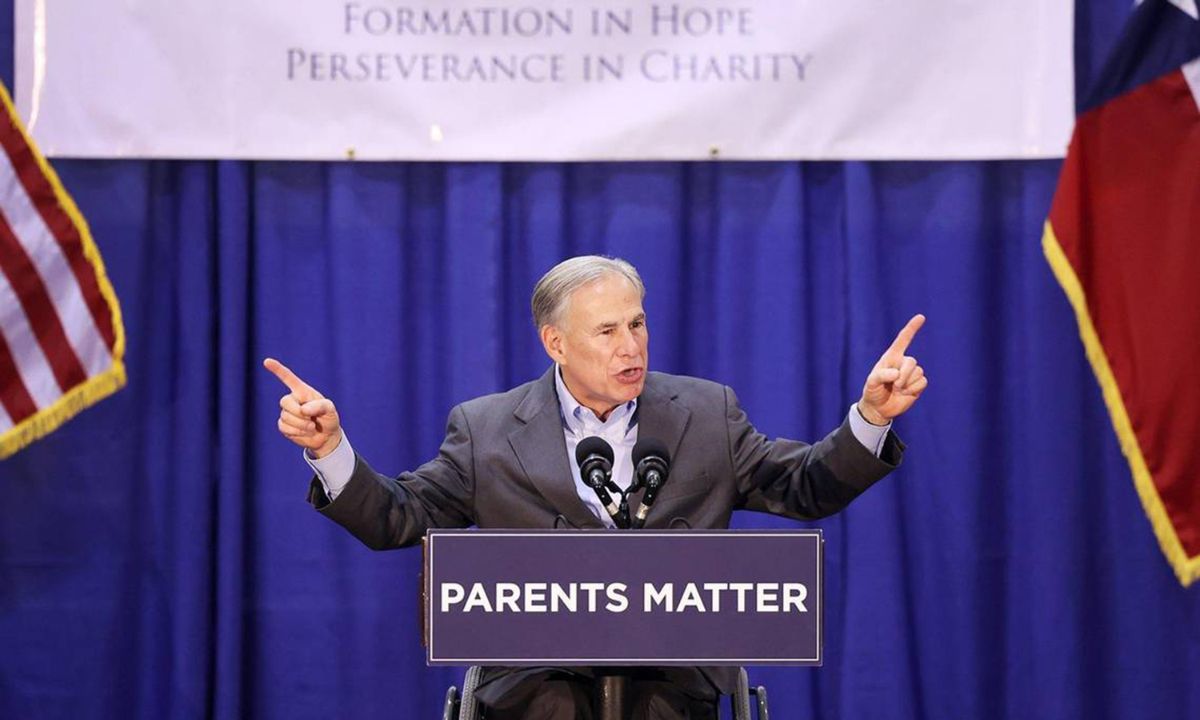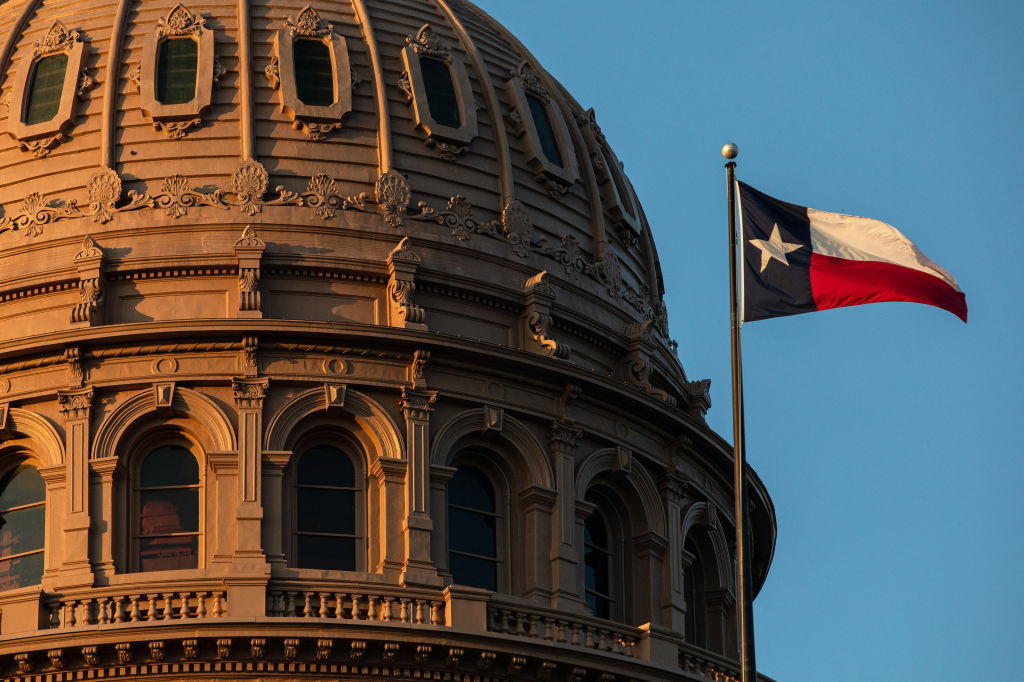Final Showdown Over ESAs in Texas as Abbott Looks to Oust Conservative Opponents
The GOP governor is making a full-court press against four ESA opponents in May 28 runoff.

Get stories like these delivered straight to your inbox. Sign up for The 74 Newsletter
This article is part of The 74’s EDlection 2024 coverage, which takes a look at candidates’ education policies and how they might impact the American education system after the 2024 election.
May 29 Update: Three GOP incumbents who had opposed Gov. Greg Abbott’s bid to make private school choice universal were defeated Tuesday. Read Kevin Mahnken’s update.
It’s not often that statehouse elections in rural Texas steer the national conversation about school choice. But things might change later this month.
On May 28, voters will choose Republican candidates in 13 of the state’s 150 House districts. Four are currently held by representatives targeted by Republican Gov. Greg Abbott for persistently stymying his attempts to create a statewide system of education savings accounts (ESAs). If the incumbents fall, many believe the plan will be enacted, turning Texas into the country’s biggest school choice marketplace as soon as 2025.
While presumptively on hold until January, when the legislature will next come into session, the proposal could gain irresistible momentum if the elections are decided in Abbott’s favor. Almost immediately, lawmakers and educators alike would begin seriously considering the fallout from what could be a billion-dollar reform to school enrollments and financing.
The election is the culmination of a yearlong campaign by Abbott and his allies that has migrated from committee hearings in Austin to front-porch campaigning in East Texas. In March, an initial round of primary voting knocked off nine Republicans who had blocked a push during last year’s legislative session to allow universal eligibility for ESAs, which provide state funds for families to use for educational expenses like private school tuition. Another handful were denied majorities, triggering runoff elections against opponents who have largely been endorsed by the governor. Abbott has openly predicted that if two more anti-voucher incumbents are defeated, the legislation can be revived and passed.
That victory, if achieved, would result from the interplay of local and national political pressures.
Abbott would immediately gain a critical policy win after multiple previous bids to expand ESAs, all of which have been thwarted by the same coalition of Democrats and rural Republicans. But national donors and advocacy groups have also taken a close interest in the electoral fight, funding the GOP insurgents to the tune of millions of dollars in the hopes of extending a generational winning streak for school choice that has unfolded over the past few years.
Texas is the biggest red state in the country, and Abbott is the long-serving governor here. He has clearly made (ESAs) a huge priority where it hasn't been a huge priority for him in the past.
Monty Exter, Association of Texas Professional Educators
Monty Exter is the director of government relations at the Association of Texas Professional Educators, a non-union organization that strongly opposes the governor’s ambitions. He said the success of voucher rollouts in other red states presented something of a “street cred issue” for Abbott, one of the most prominent conservative leaders in the country.
“Texas is the biggest red state in the country, and Abbott is the long-serving governor here,” he said. “He has clearly made it a huge priority where it hasn’t been a huge priority for him in the past. And it’s certainly not a new issue.”
Rural pushback
Indeed, the roots of this month’s extended primary fight extend far into the past, even predating Abbott’s time in office.
In 2007, 2009, and 2013, in response to prior Republican governors’ voucher designs, the Texas House of Representative adopted budgetary rules that explicitly prohibited the transfer of public funding to private schools. In 2017, an ESA bill passed the Senate only to be torpedoed in the lower chamber. And just last spring, Abbott’s renewed effort — sweetened with offers of extra per-pupil funding for traditional public schools — fell short again in the face of familiar bipartisan resistance.
The overriding obstacle cuts against traditional partisan loyalties: A key faction of Republican legislators are perennially skeptical of the potential disruption of voucher programs to small-town school districts, often their communities’ largest employers. Local officials fear that families will quickly abandon public schools after receiving an ESA, leading to a collapse in both student enrollment and funding.
Those concerns weren’t allayed even after Abbott called a special session last fall to force further consideration of the proposal. In the months following, he turned to the primary ballot, supporting a host of challengers to the House Republicans who defied him. He was joined in his endorsements by high-profile allies like Sen. Ted Cruz, while Republican Attorney General Ken Paxton filed lawsuits against seven school districts whose leaders he accused of whipping up opposition to pro-ESA primary candidates. (While several of those districts later resolved the complaints with the attorney general’s office, charges are pending against administrators accused of using school resources for electioneering purposes.)

According to survey results, the public stir around school choice made little impact on Republicans around the state. In a February poll from the Texas Politics Project, a research institute housed at the University of Texas at Austin, just 2 percent of potential Republican voters listed ESAs as a top issue influencing their primary vote. Asked which politicians’ endorsements might sway them, only 7 percent named Abbott.
But the governor’s energetic campaigning clearly helped to sweep out a healthy proportion of the state GOP’s biggest ESA critics in the March 5 primary. So did the heavy spending of conservative donors — including billionaire TikTok investor and school choice maven Jeff Yass, who personally gifted Abbott with $6 million in December to spend on the campaigns.
“What made this cycle different was that the governor decided to stake so much of his political capital on the passage of a school voucher program in Texas and — upon failing to achieve that goal — committed to spending significant amounts of money to unseat these incumbent legislators,” argued Joshua Blank, the Texas Politics Project’s research director.
It remains to be seen whether the same recipe will unseat the four additional incumbents fighting runoff battles this month. Cal Jillson, a professor of government at Southern Methodist University and a longtime observer of Texas politics, said that runoff elections tend to draw a smaller and more ideologically committed electorate. That could be a bad sign for Abbott’s targets.
With the low turnout in a runoff race, it's usually the most motivated people who will end up turning out and casting ballots.
Cal Jillson, Southern Methodist University
“We did see a lot of these incumbents go down in the primary,” Jillson noted. “With the low turnout in a runoff race, it’s usually the most motivated people who will end up turning out and casting ballots, and those tend to be people who are deeply committed to the party and social conservative issues.”
‘A clear message’
For now, ESA proponents are using every edge to grab more seats in an already-conservative chamber — particularly money.
In addition to the individual contributions made by Yass and other wealthy activists, the conservative challengers have drawn deeply from the coffers of the Club for Growth, a right-leaning advocacy organization based in Washington. Through an affiliated Super PAC, the School Freedom Fund, the Club spent $4 million in the March primaries; they’ve dropped at least as much in the three months since.
In a statement, Club for Growth President David McIntosh said the group jumped into the little-publicized legislative primaries not just to shape Texas policy, but also to send a message to all Republicans guilty of “denying parents and kids choice in education.” The organization might look for similar opportunities in places like Georgia and Tennessee, he added.
“This election will send a clear message to Republicans in every state that you should retire or expect to lose in your next primary,” McIntosh warned. “We are also hopeful that this will push school freedom allies in other states to reform failing public schools, and we are looking at replicating these efforts in other states.”
That nationwide perspective has grown as more red jurisdictions have acted to establish or expand families’ eligibility for private school choice. In all, 11 states now boast universal ESA access, and with each newly adopted law — Alabama became the latest to pass its legislation in March — it has become more noteworthy that Texas still lags behind.
Jillson said he believed that vouchers would be all but inevitable if the embattled incumbents lose their elections next week. Even if a few survive, he said, they will be “sobered” against continuing to stand in the way of ESA expansion.
“I suspect that some of these four will be defeated. That will provide Abbott with a slim majority in the next regular session, which could grow if other members who’ve opposed vouchers in the past say, ‘I can’t do this anymore or he’ll come for me.’ ”
Get stories like these delivered straight to your inbox. Sign up for The 74 Newsletter

;)


